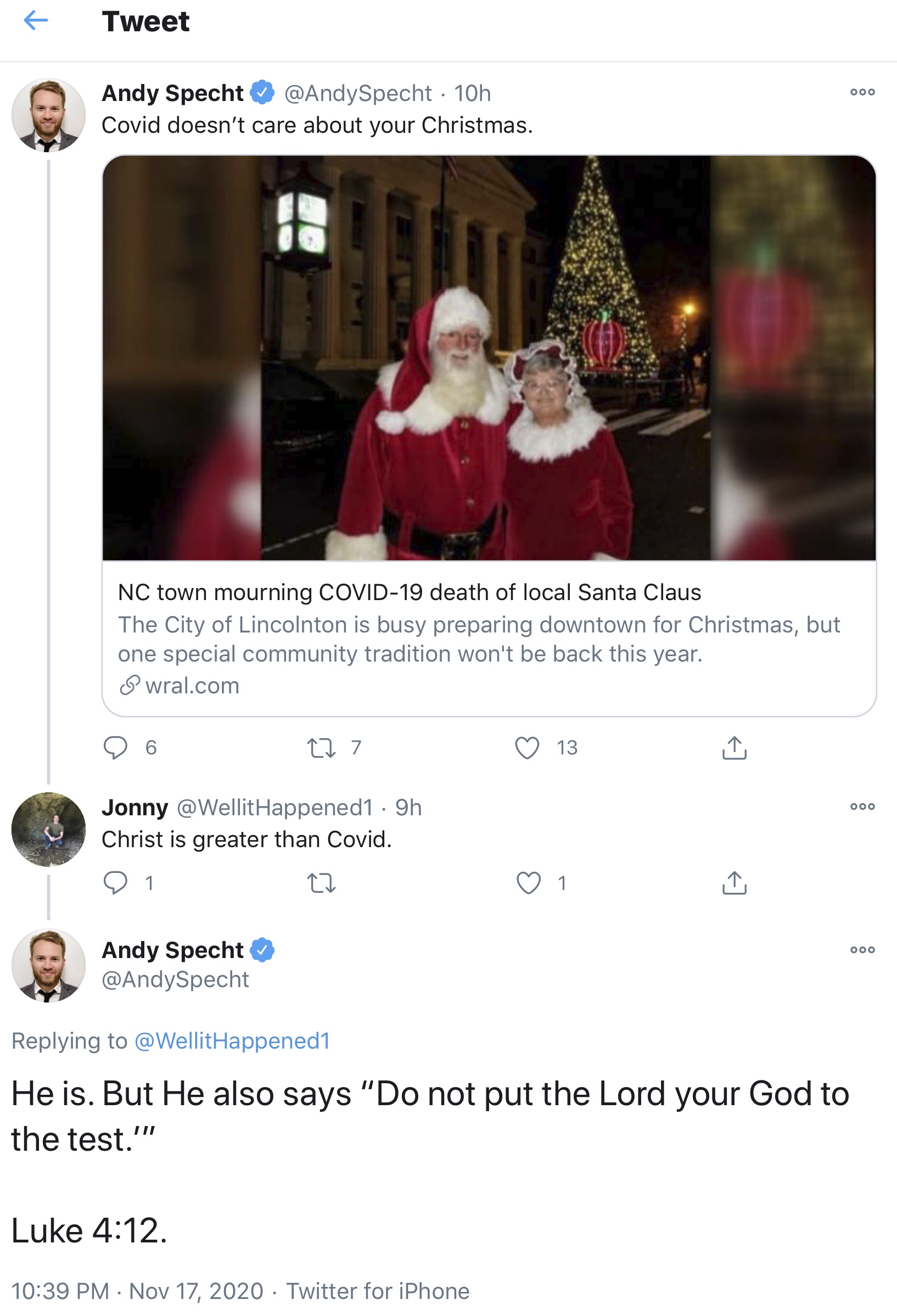In a recent research brief, I decried media and public officials creating a climate of fear and suspicion over the pandemic. I intimated that it was taking on quasi-religious trappings:
People are left with the impression that we’re surrounded by a contagion that’s far more widespread and deadly than it really is. Among other things, it makes them extremely vexed when someone says something like “far more widespread and deadly than it really is,” as if seeking to quantify how infectious and deadly this virus constitutes a kind of COVID blasphemy. …
People seem to view contracting an infection as a consequence of someone’s COVID sin. You didn’t social-distance enough. You shouldn’t have gone to that restaurant. They’re not wearing masks. “We too often let our guard down,” assumed Cooper. They shouldn’t be holding that rally. They shouldn’t be praising Jesus.
It comes down to this presumed commandment: We shouldn’t be doing anything we enjoy that brings people together to laugh, talk, cheer, and smile. Sit home, fear the virus, and obsess about politics — the one activity that is safe.
I had not asked for fresh examples of this COVID-conflated religiosity, but PolitifactNC and WRAL politics reporter Andy Specht provided one all the same yesterday on Twitter, using the sad news of someone’s death from the virus to do so:

Alas, the comment doesn’t improve upon further consideration. It is, however, an accurate snapshot of our time.
In the same brief, I had written:
Normally, government officials and media consider it their public duty to calm people and tamp down unhealthy, irrational fears. Not this year. Apparently, part of their vision of a “new normal” involves terrified reporters terrifying viewers and terrific outrage at people who aren’t sufficiently terrified.
I prefer my media-fed mass hysterias narrated by Orson Welles.


